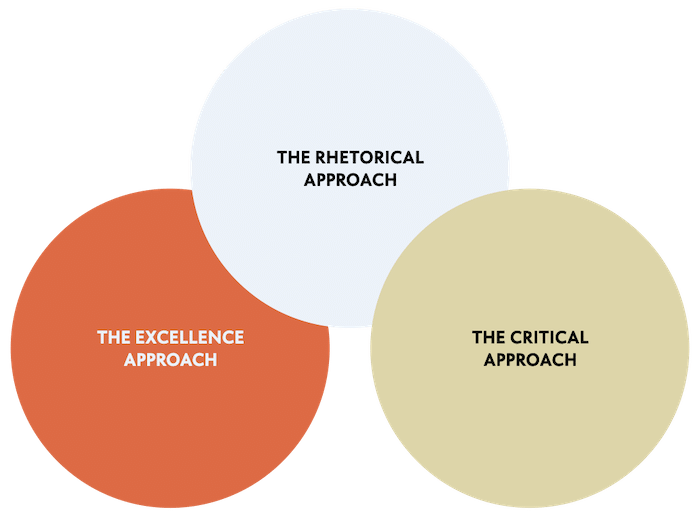Does spin suck?
The word “spin” does have a negative connotation. One of my favourite PR bloggers, Gini Dietrich, even named her blog Spin Sucks.
And to be fair, I’m sure I would agree with how Dietrich would define spin. Deliberate distortion of facts, manipulation, and outright lying to the public — yeah, that spin sucks.
But I see no reason to dismiss a perfectly usable word. We’re in public relations; we should know that every story has more than one side.
Here we go:
What is Spin?
According to Wikipedia, here’s how to define spin:
“In public relations, spin is a form of propaganda, achieved through providing a biased interpretation of an event or campaigning to persuade public opinion in favor or against some organization or public figure. While traditional public relations may also rely on creative presentation of the facts, “spin” often implies the use of disingenuous, deceptive, and highly manipulative tactics.”
Source: Wikipedia 1Spin (propaganda). (2023, November 19). In Wikipedia. https://en.wikipedia.org/wiki/Spin_(propaganda)
Ouch. That is not a very positive description.
According to Merriam-Webster, a spin doctor is “[…] a person (such as a political aide) whose job involves trying to control the way something (such as an important event) is described to the public to influence what people think about it.”
Well. Merriam-Webster’s description doesn’t shout “evil” as much as Wikipedia’s, so that’s something.
Well, here’s what I think:
We shouldn’t be strangers to reclaiming negative words to make them positive. After all, Edward Bernays, the father of PR, wrote in Propaganda from 1928:
“I am aware that the word propaganda carries too many minds an unpleasant connotation. Yet whether, in any instance, propaganda is good or bad depend upon the merit of the cause urged, and the correctness of the information published. In itself, the word propaganda has certain technical meanings which, like most things in this world, are neither good nor bad but custom makes them so.”
Source: Propaganda 2Bernays, E. L. (1928). Propaganda. Horace Liveright.
Still, Bernays didn’t exactly succeed in turning the tables for the word propaganda.
But the majority is sometimes wrong. I think both “propaganda” and “spin” deserve better PR.
“We are all captives of the picture in our head — our belief that the world we have experienced is the world that really exists.”
— Walter Lippmann (1889 – 1974)
A Glass of Many Truths

Spin Academy | Online PR Courses
A Glass of Many Truths
Let’s say that there’s a glass of water standing on a table in front of you — and there’s water in it. The glass holds 100 ml of water but could store 200 ml if filled up.
I could say that the glass is half full. That’s true.
I could also say that the glass is half empty. Still true.
Both statements are equally valid, of course, but the choice of words will influence our stereotypical thinking about the state of the glass and its content.
The second statement emphasises emptiness (the glass needs a refill), and the first statement is fullness (the glass needs no refill).
Now, let’s get even more creative:
The glass is full. True, yes?
Technically, this statement is true as well:
50% of the glass contains water; the other 50% is split between roughly 78% nitrogen, 21% oxygen, argon, carbon dioxide, and small amounts of other gasses.
How about this:
The glass is not half full, nor is it half empty. Also true.
An equal split between water and gasses implies an exact division of protons, neutrons, and electrons. But Heisenberg’s uncertainty principle says no.
Such accuracy might not matter to you or me, but for a physicist, these precise versions of the truth might make all the difference.
So, what does a glass of water have to do with PR?
Learn more: Does Spin Suck?
💡 Subscribe and get a free ebook on how to get better PR.

Everybody Spins
As humans, we spin. We frame our statements to make them serve our purposes. Fundamentally, it’s our right to make a case that is ours and not someone else’s.
And if someone comes along saying that they have the absolute authority on what version of the truth you and everyone else must abide by?
Well, run. And while you’re sprinting for safety under panicking breaths, you can be assured that those scary authoritarians had their tyrannical versions of the truth ready to go.
Spin for the Win
In a democracy, we’re supposed to have our say to influence our world with our words.
If you don’t get to spin your reality the way you see it, someone else will surely do it for you — but not necessarily with your best interest in mind.
I’m proud to say that I spin my version of how I see the world — all the time. And I help my clients to spin their versions of the truth, too. I’m a propagandist!
“This is just semantics,” some might argue.
Well, that’s my point exactly, I say.

THANKS FOR READING.
Need PR help? Hire me here.

PR Resource: Fundamental Approaches To PR
Approaches To Public Relations
There are three scholarly approaches to public relations (PR):

The excellence PR approach = this public relations approach focuses on objectives and corporate value creation. The underlying motivation behind the theory was that public relations were mainly a variety of tactical tools that desperately needed a management theory to work well in a sophisticated organisation. 3Silfwer, J. (2022, November 6). PR Approaches: Excellence, Rhetorical, and Critical. Doctor Spin | The PR Blog. https://doctorspin.net/pr-approaches/
Notable mentions: James E. Grunig, Larissa A. Grunig
The rhetorical PR approach = this public relations approach stems from ideas dating back to ancient Greece. It’s a psychological theory of how communication structures human culture by shaping human minds. The rhetorical approach is practical and lacks moral judgment. 4Silfwer, J. (2022, November 6). PR Approaches: Excellence, Rhetorical, and Critical. Doctor Spin | The PR Blog. https://doctorspin.net/pr-approaches/
Notable mentions: Edward Bernays, The Toronto School of Communication Theory, Robert Heath
The critical PR approach = this public relations approach is deeply rooted in theories of societal power dynamics. Power is seen as a means of exerting dominance, manipulation, and oppression. The critical approach borrows many ideas from the rhetorical approach by placing them in moral frameworks. 5Silfwer, J. (2022, November 6). PR Approaches: Excellence, Rhetorical, and Critical. Doctor Spin | The PR Blog. https://doctorspin.net/pr-approaches/
Notable mentions: Walter Lippmann, Noam Chomsky
The Excellence Approach to PR
Management theory often focuses on operational excellence. The Excellence Study mapped value creation onto strategic communication and found that best practices create value for an organisation. They reduce costs and risks while increasing revenue.
“The programme of research known as the excellence theory began in the 1960s with J. Grunig’s research on publics found among Colombian farmers. Research then followed on the role of public relations in organisational decision-making, the symmetrical model of public relations, public relations measurement, and how the structure and environment of organisations shape public relations behaviour. […] The excellence theory has evolved into a general theory of public relations as a strategic management function, and ongoing research now is adding concepts and tools that public relations professionals who serve in a strategic role can use.”
Source: Excellence Theory in Public Relations: Past, Present, and Future 6Grunig, J.E., & Grunig, L.A. (2008). Excellence Theory in Public Relations: Past, Present, and Future. https://www.semanticscholar.org/paper/ccfadd878d41454375357ce99ec7fcb148e6b48f
How can PR have such best practices? The answers are, non-surprisingly, management-focused: Leadership roles, goal alignments, high levels of strategic competency, high ethical standards, and two-way symmetric communication with corporate stakeholders.
Who typically prefers the excellence approach?
The Rhetorical Approach to PR
In ancient Greek society, public debate and persuasion were considered the best approaches to ensuring peaceful and stable governance. This was the cradle of ideas like democracy and free speech. There was no best practice, only outcomes from multiple voices.
“Rhetorical theory features how the public relations process becomes enriched through the role co-created, shared meaning plays in society as a blend of mind and self. The rhetorical heritage features the potent role of fact (as interpreted information), judgment, and identification as discourse themes enacted in public arenas. Public relations can add value to society by assuring that choices become enlightened, risks are ethically managed, and relationships are mutually developed. Through ethical rhetorical practice that results from the reflective character of organisations, public relations helps society to be more fully functioning.”
Source: Rhetorical Perspective and Public Relations: Meaning Matters 7Heath, R. L., & Frandsen, F. (2008). Rhetorical Perspective and Public Relations: Meaning Matters. VS Verlag Für Sozialwissenschaften EBooks, 349 – 364. … Continue reading
If you hear a PR professional talk passionately and positively about the importance of persuasion and perception management, they are most likely supporters of the rhetorical approach. They’re focused on language and relationships and think of society descriptively.
Many modern rhetorical concepts have stemmed from the Toronto School of Communication Theory and were later refined and further developed by Robert L. Heath.
Who typically prefers the rhetorical approach?
The Critical Approach to PR
“Critical theory” is a broad term encapsulating tools for analysis from various fields. Examples of such devices for analysis are feminism, cultural studies, structuralism, semiotics, and postmodernism. As a broad approach, it offers a wide range of scholarly criticism.
“The dominance of Excellence Theory in public relations theory and research may be eroding as contemporary issues in corporations, including the concern with activist challenges to reputation management and corporate social responsibility, increase in visibility and demand explanation. […] Excellence Theory’s acknowledgement of once-vilified concepts like persuasion and power sets the stage for critical public relations theory and research to emerge as significantly more capable of addressing activist advocacy and concomitant issues. The paper argues that critical theory, buoyed by acceptance of its key concepts, its increasing access to presentation venues and journals sympathetic to once-marginalised, alternative perspectives, is poised to infiltrate the public relations orthodoxy.”
Source: Public Relations Review 8Coombs, W. T., & Holladay, S. J. (2012). Fringe public relations: How activism moves critical pr toward the mainstream. Public Relations Review, 38(5), 880 – 887. … Continue reading
Since critical PR theory borrows from various scholarly traditions, it’s challenging to summarise the critical approach. But there’s often a focus on societal power dynamics and detailed victimology. The critical approach has many touch points with the rhetorical approach, but they tend to end up on opposite sides of the excellence approach:
While the rhetorical approach finds the excellence approach too normative, the critical approach isn’t normative enough.
Who typically prefers the rhetorical approach?
Read also: 3 PR Approaches: Excellence, Rhetorical, and Critical
Annotations
| 1 | Spin (propaganda). (2023, November 19). In Wikipedia. https://en.wikipedia.org/wiki/Spin_(propaganda) |
|---|---|
| 2 | Bernays, E. L. (1928). Propaganda. Horace Liveright. |
| 3, 4, 5 | Silfwer, J. (2022, November 6). PR Approaches: Excellence, Rhetorical, and Critical. Doctor Spin | The PR Blog. https://doctorspin.net/pr-approaches/ |
| 6 | Grunig, J.E., & Grunig, L.A. (2008). Excellence Theory in Public Relations: Past, Present, and Future. https://www.semanticscholar.org/paper/ccfadd878d41454375357ce99ec7fcb148e6b48f |
| 7 | Heath, R. L., & Frandsen, F. (2008). Rhetorical Perspective and Public Relations: Meaning Matters. VS Verlag Für Sozialwissenschaften EBooks, 349 – 364. https://doi.org/10.1007/978 – 3‑531 – 90918-9_23 |
| 8 | Coombs, W. T., & Holladay, S. J. (2012). Fringe public relations: How activism moves critical pr toward the mainstream. Public Relations Review, 38(5), 880 – 887. https://doi.org/10.1016/j.pubrev.2012.02.008 |


